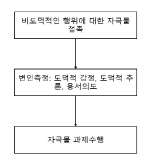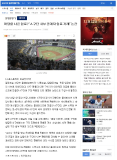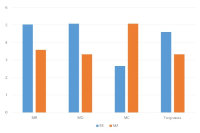PURPOSE This study aimed (1) to analyze the behavioral intention and use behavior among the consumers of online home training contents via YouTube by employing the unified theory of acceptance and use of technology (UTAUT); (2) to test the moderating effects of risk perception toward the coronavirus (COVID-19) infection, and 3) to test differential impacts of generational difference across millennial and baby boom generations. METHODS A total of 400 questionnaires were distributed, and 383 samples were used for the final analysis after excluding 17 incomplete responses. Data were analyzed using the SPSS 25.0 and AMOS 22.0. RESULTS It was found that (1) the performance expectancy, the effort expectancy, and the social influence had positive effects on behavioral intention; (2)the facilitating condition had negative effects on the use behavior; (3) the behavioral intention had positive impact on the use behavior. Moreover, the risk perception toward the COVID-19 infection did not have moderating impacts on the UTAUT model, whereas generational differences did. CONCLUSIONS Our results suggest that the marketing strategy that improves exercise performance, convenience, and social influencing factors may be key to home training customers' behavioral intention and use behavior. Furthermore, home training material makers should recognize that the features and infrastructure required for the two generations are distinct and develop a separate marketing strategy for each.

Purpose Drawing on Socioemotional Selectivity Theory, the present research aims to investigate how sport consumers’ moral reasoning strategies and forgiveness intent toward a sport organization’s misconduct depending on the consumers’ different time perspectives(expansive vs. limited). Methods An experimental study (total n = 129; Baby Boomer generation = 62, generation MZ = 67) was conducted by utilizing a fictitious scenario depicting a sport organization’s misconduct. The proposed hypotheses were tested by conducting T-test, correction analysis, and multiple regression analysis using SPSS 21.0. Results There were significant differences in moral reasoning and forgiveness based on different time perspective. Baby Boomer(MZ) group showed higher(lower) levels of moral rationalization, moral decoupling, and intent of forgiveness compared to MZ(Baby Bommer) group, while showing lower(higher) level of moral coupling. A result also revealed that negative moral emotions had moderating effect between a limited time perspective and moral coupling among MZ participants. Conclusion The results of this study indicated that sport consumers’ time perspective has a predictive function on moral reasoning strategies. Thus, it is necessary for sport organizations to establish strategies focusing on the consumers’ time perspective to effectively respond to an unexpected crisis.


